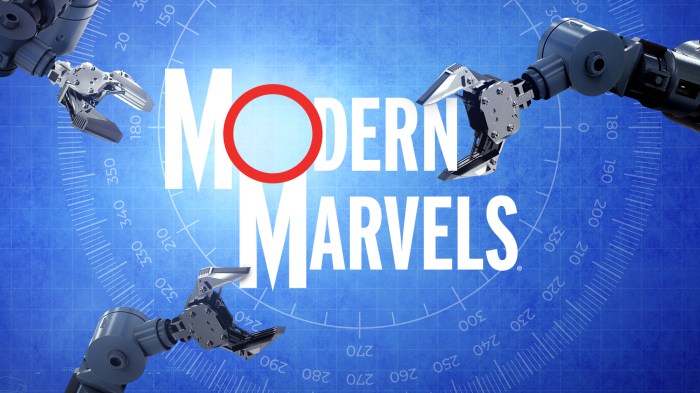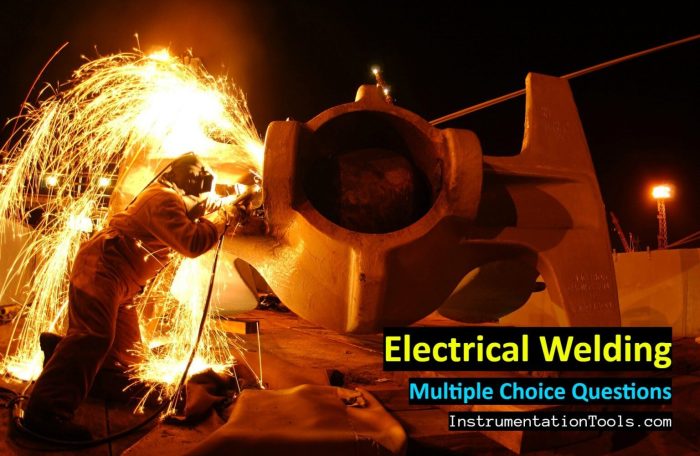Delving into the Modern Marvels Welding Video Worksheet Answer Key, this comprehensive guide unlocks the secrets of welding, empowering you with the knowledge and techniques to master this essential craft. From an overview of welding techniques and equipment to step-by-step project instructions, this answer key serves as your trusted companion on your welding journey.
Welding Techniques: Modern Marvels Welding Video Worksheet Answer Key
Welding is a fabrication process that joins materials, usually metals or thermoplastics, by causing fusion. The most common welding process is arc welding, which uses an electric arc to melt the materials together. Other welding processes include gas welding, which uses a flame to melt the materials together, and resistance welding, which uses pressure and heat to join the materials together.Each
welding technique has its own advantages and disadvantages. Arc welding is the most versatile welding process, and it can be used to weld a wide variety of materials. However, arc welding can also be dangerous, and it requires special training and equipment.
Gas welding is less versatile than arc welding, but it is also less dangerous and requires less training and equipment. Resistance welding is the most efficient welding process, but it can only be used to weld certain types of materials.When
choosing a welding technique, it is important to consider the following factors:* The type of materials to be welded
- The thickness of the materials to be welded
- The desired strength of the weld
- The cost of the welding process
- The safety of the welding process
Welding Equipment
The following are the most common types of welding equipment:* Welding machine: The welding machine is the power source for the welding process. It provides the electrical current that is used to create the arc.
Welding torch
The welding torch is the tool that is used to direct the arc and to melt the materials together.
Welding helmet
The welding helmet protects the welder’s eyes and face from the intense light and heat of the arc.
Welding gloves
The welding gloves protect the welder’s hands from the heat and sparks of the arc.
Welding apron
The welding apron protects the welder’s clothing from the heat and sparks of the arc.When selecting welding equipment, it is important to consider the following factors:* The type of welding process to be used
- The thickness of the materials to be welded
- The desired strength of the weld
- The cost of the equipment
- The safety of the equipment
Welding Materials
The following are the most common types of welding materials:* Welding wire: Welding wire is the material that is melted to create the weld. It is typically made of steel, but it can also be made of other materials, such as aluminum, copper, or nickel.
Welding flux
Welding flux is a material that is used to clean the surface of the materials to be welded and to protect the weld from oxidation.
Welding gas
Welding gas is a gas that is used to shield the weld from the atmosphere. It is typically made of argon, helium, or carbon dioxide.When selecting welding materials, it is important to consider the following factors:* The type of welding process to be used
- The type of materials to be welded
- The thickness of the materials to be welded
- The desired strength of the weld
- The cost of the materials
Welding Projects

The following are some common welding projects:* Welding a steel frame
- Welding a pipe
- Welding a car body
- Welding a boat
- Welding a sculpture
When welding, it is important to follow the proper safety procedures. These procedures include:* Wearing a welding helmet
- Wearing welding gloves
- Wearing a welding apron
- Using a welding machine that is in good working condition
- Working in a well-ventilated area
- Keeping the welding area clean and free of debris
Welding Safety

Welding is a dangerous activity, and it is important to take precautions to avoid injury. The following are some tips for welding safety:* Always wear a welding helmet when welding.
- Always wear welding gloves when welding.
- Always wear a welding apron when welding.
- Always use a welding machine that is in good working condition.
- Always work in a well-ventilated area when welding.
- Always keep the welding area clean and free of debris.
- Never weld near flammable materials.
- Never weld on a wet surface.
- Never weld on a surface that is not properly grounded.
- Never weld without proper training.
Welding Resources
The following are some resources for further learning about welding:* American Welding Society: https://www.aws.org/
The Welding Institute
https://www.twi-global.com/
Lincoln Electric
https://www.lincolnelectric.com/
Miller Electric
https://www.millerwelds.com/
Hobart Brothers
FAQ Summary
What are the different types of welding techniques covered in the video worksheet?
The video worksheet covers various welding techniques, including arc welding, MIG welding, TIG welding, and oxy-fuel welding.
What are the advantages and disadvantages of each welding technique?
Each welding technique offers unique advantages and disadvantages. Arc welding is versatile and efficient, MIG welding is fast and produces clean welds, TIG welding is precise and suitable for delicate materials, while oxy-fuel welding is cost-effective and ideal for thick metals.
What safety precautions should be taken when using each welding technique?
Proper safety precautions are crucial for all welding techniques. Wear appropriate protective gear, ensure adequate ventilation, and follow manufacturer’s guidelines to minimize risks associated with heat, fumes, and electrical hazards.